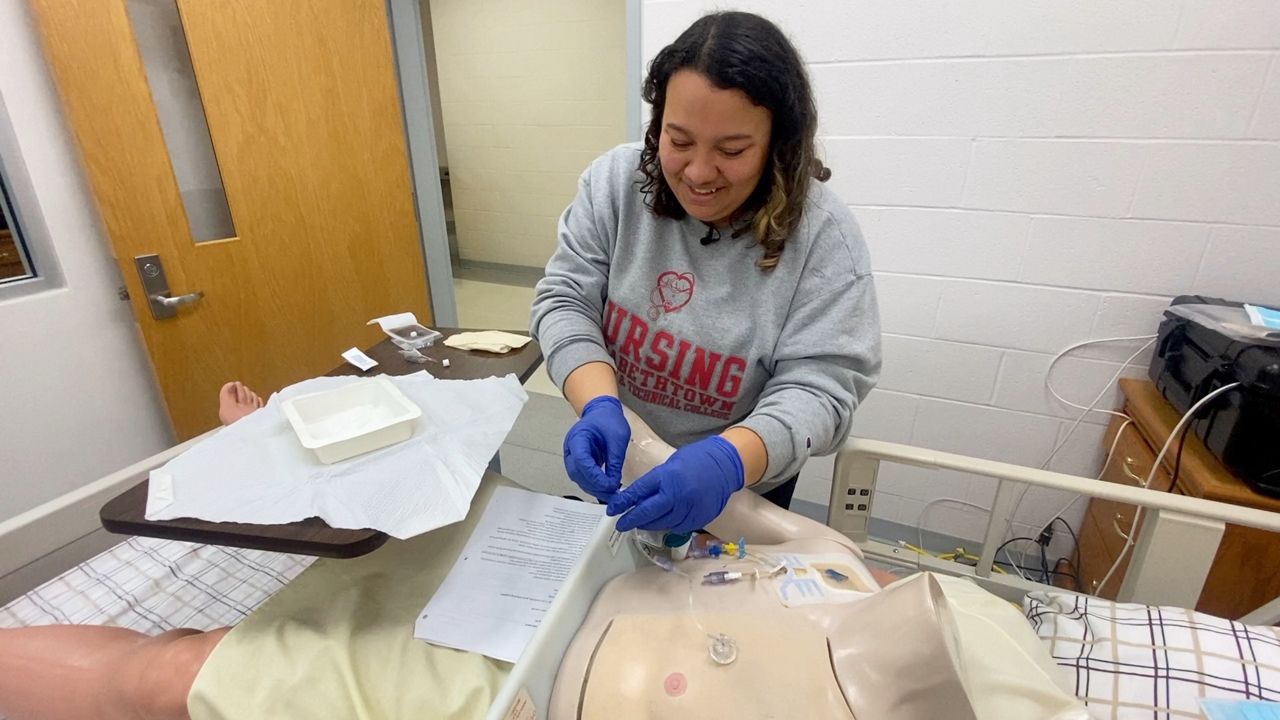Nearly three years ago, Maya Eichorn’s high school classes switched to online learning in response to the COVID-19 pandemic.
For the York resident, it was a tough transition.
“I struggled immensely with online school and took summer classes in an attempt to catch up,” she told lawmakers Monday. “It did not go well.”
But she did finish high school and is one of thousands of Mainers who have continued their education because of a state program to cover the cost of two years at a community college.
“Without the Maine free college program, I would be aimlessly moving through life,” she said.
That program will end with current high school seniors unless lawmakers approve a $15 million proposal in the state budget to continue it another two years.
“The goal was to reach out and lift up those students most impacted by the pandemic,” David Daigler, president of the Maine Community College System, told the Appropriations and Education committees. “We’ve done that. Our enrollment is up 12%.”
That translates to 16,791 students, up from 15,004 the previous year, according to the college system. Of those, 5,574 students are eligible for the free college program because they graduated from high school in 2020, 2021 or 2022.
Daigler’s testimony came as the Legislature’s budget-writing committee is considering Gov. Janet Mills’ proposed $10.3 billion, two-year budget.
The budget would provide funds to continue the program for high school graduates in 2024 and 2025. The program requires students to pursue a two-year degree or one-year certificate, live in Maine while enrolled and apply for other grant programs.
Half of the students in the program are men, which is counter to a national trend where women make up 60% of college enrollees, Daigler said.
“Our free community college students are also bucking a nationwide trend where young men from rural communities are shunning higher education,” he said.
Those students are training to fill jobs in health care, education and construction. They are also pursuing fields dedicated to fighting climate change, where they may work installing heat pumps, solar panels and wind power, he said.
During the public hearing, adjunct instructor Katrina Ray-Saulis, the union chapter president of the Maine Service Employees Association, asked lawmakers to consider an increase to what she described as low pay for many community college instructors.
“We’ve seen some amazing students come through our classrooms because of this program and we want them to keep coming, but it cannot be ignored that their education is being carried on the backs of underpaid, overworked adjuncts,” she said.
Ray-Saulis said adjunct instructors carry the same workload as full-time faculty, but make less than $24,000 a year, while faculty makes about twice as much.
“We are doing the same work as full-time, permanent faculty and we deserve the same wages and respect,” she said.
In addition to the extension of the free college program, Daigler asked lawmakers to consider funding an additional $5 million request for programs to better support community college students.
Because they tend to be older — the average age is 25 — and many are the first in their families to go to college, they are often balancing competing needs.
“They work, they care for kids, they worry about their aging parents,” Daigler said. “They pay for books and housing and childcare and transportation and rising food costs. They are overwhelmed and facing financial and emotional hurdles that seem insurmountable.”



